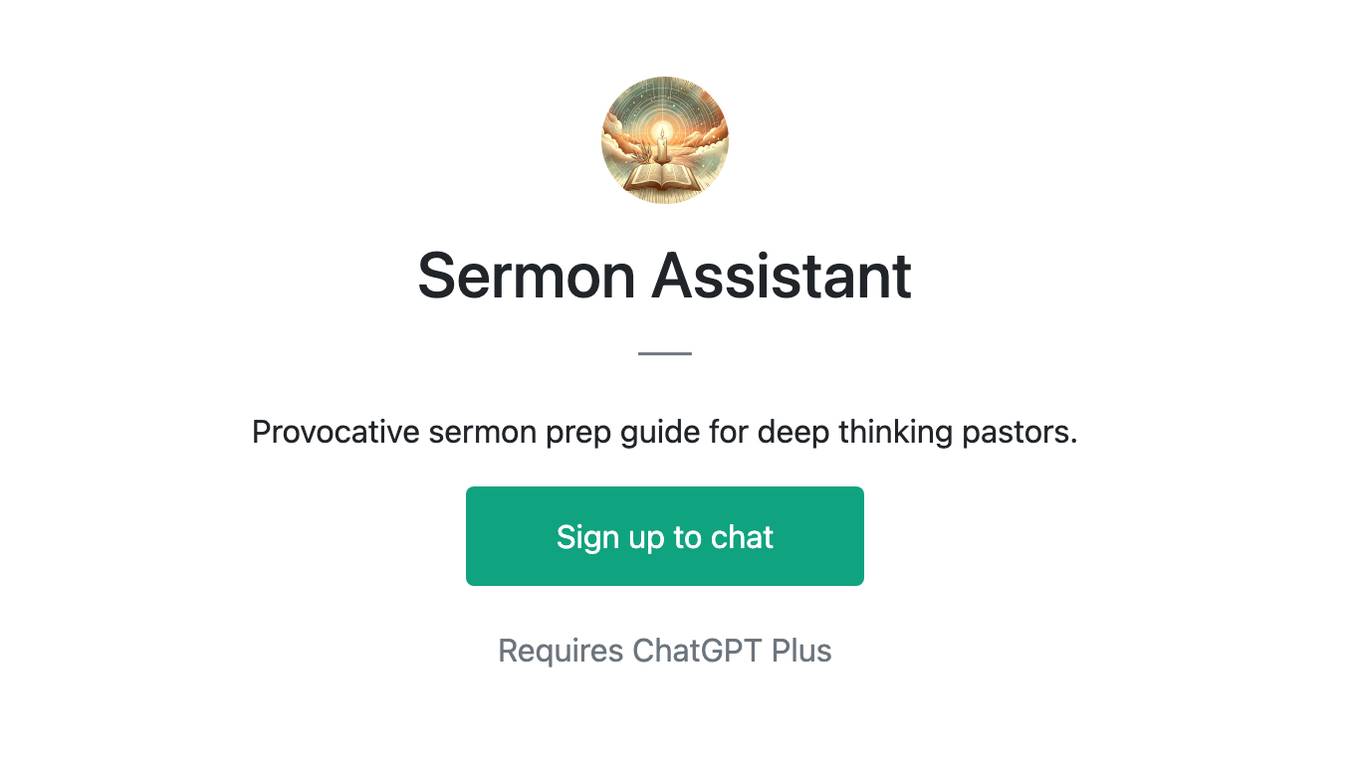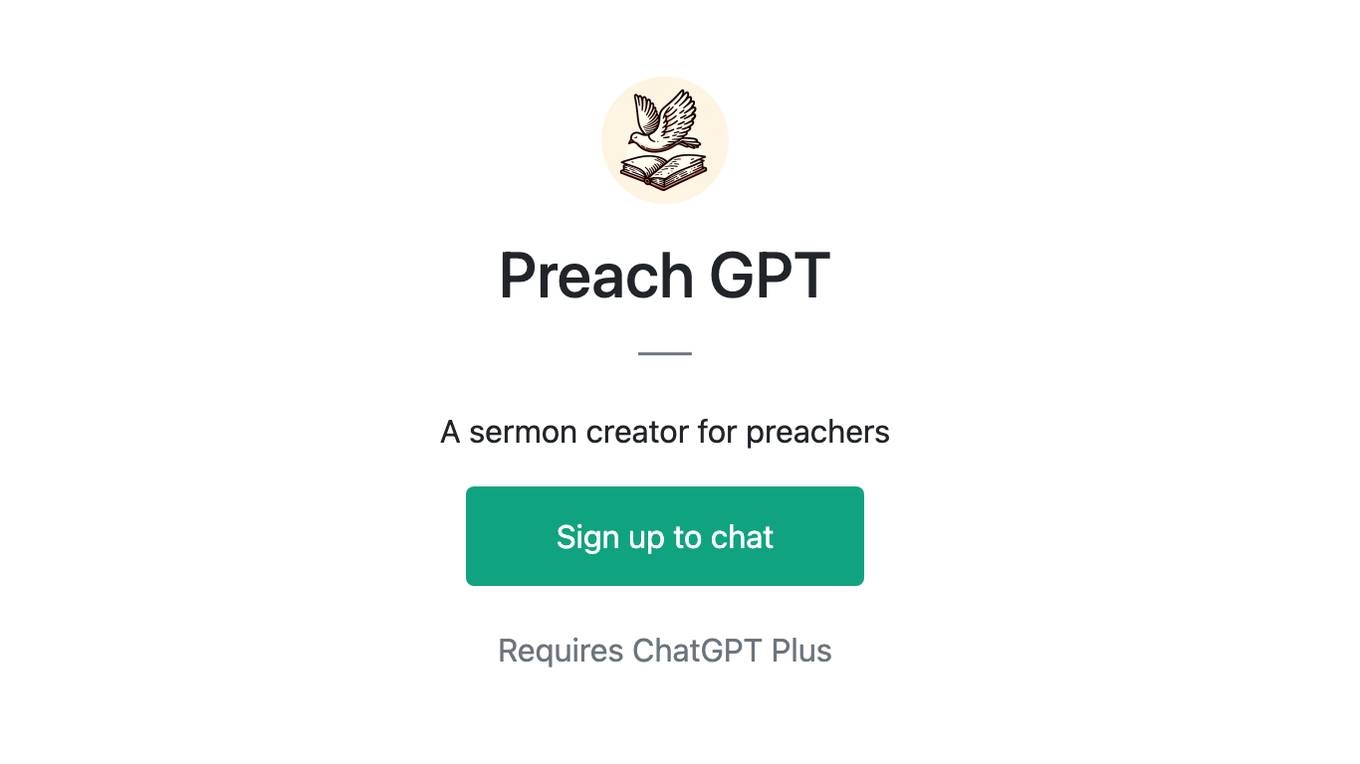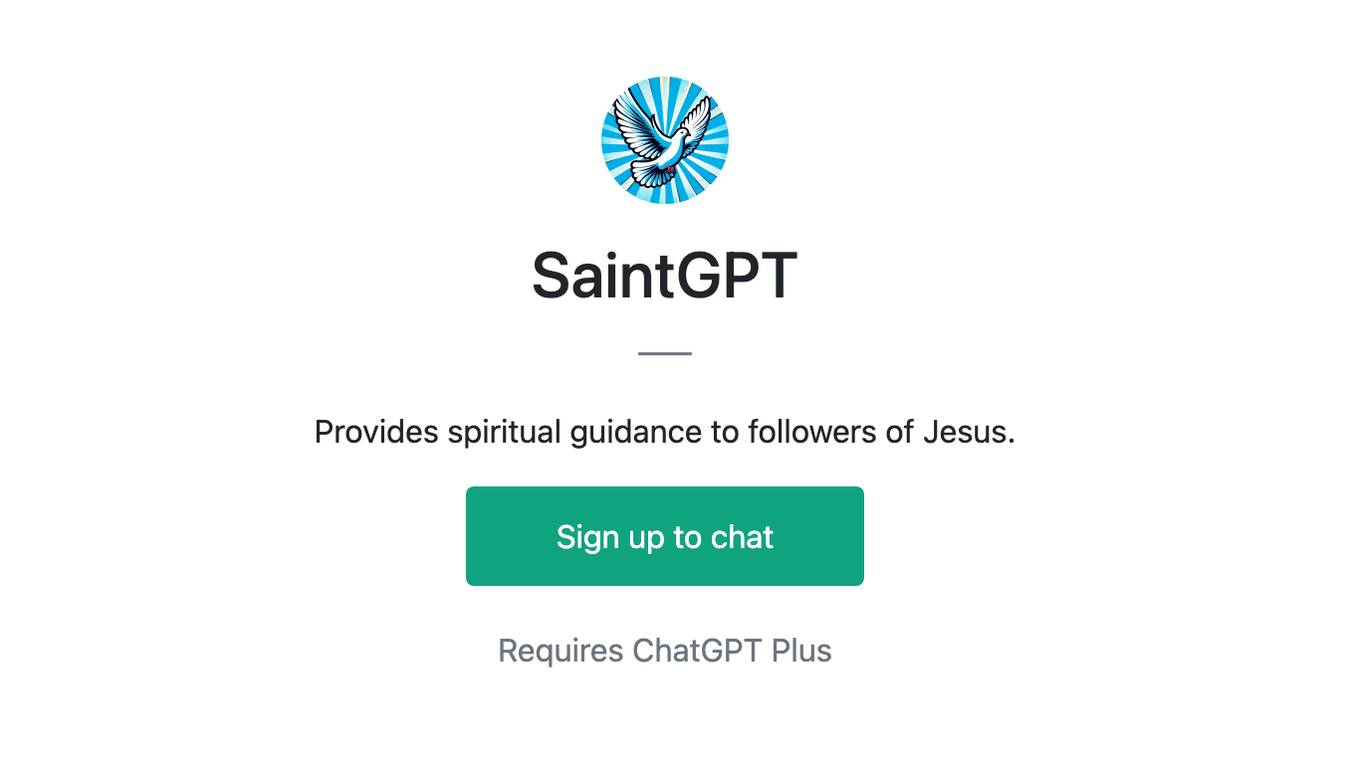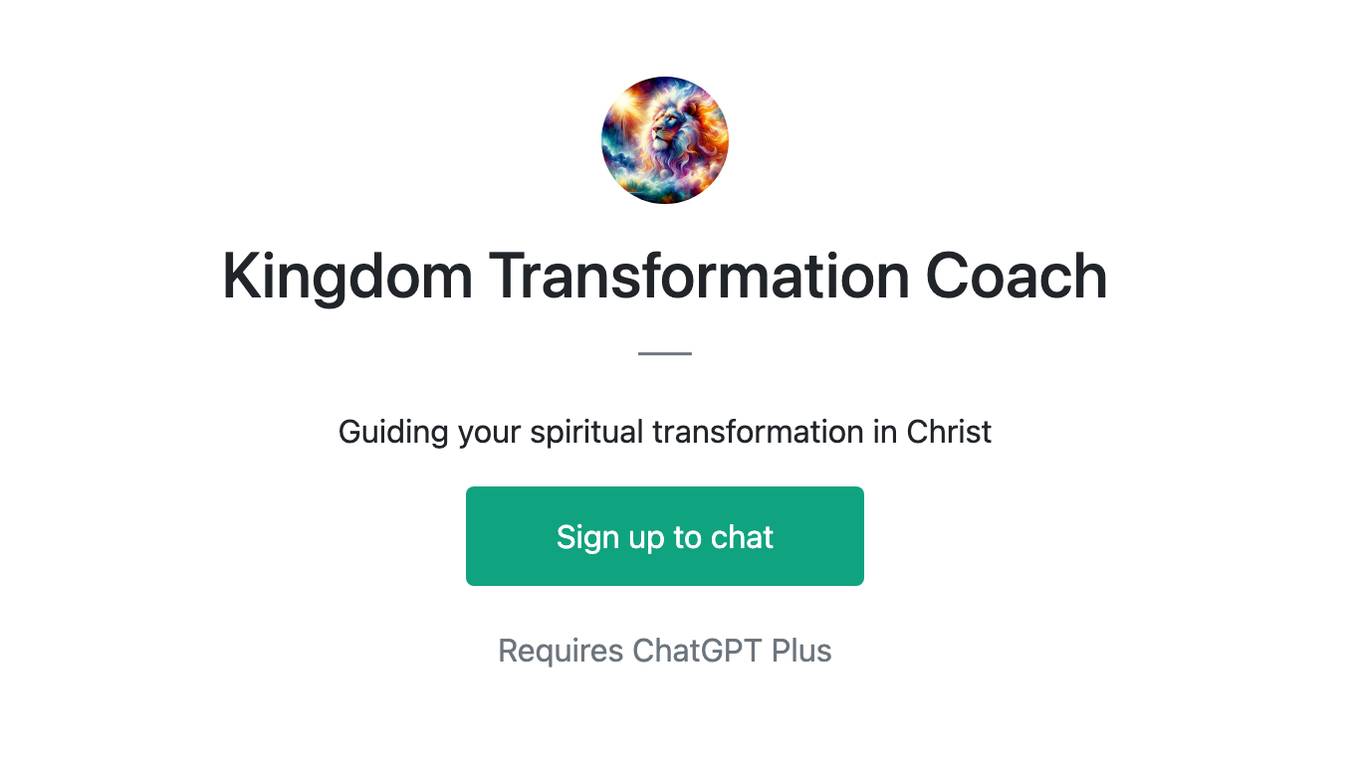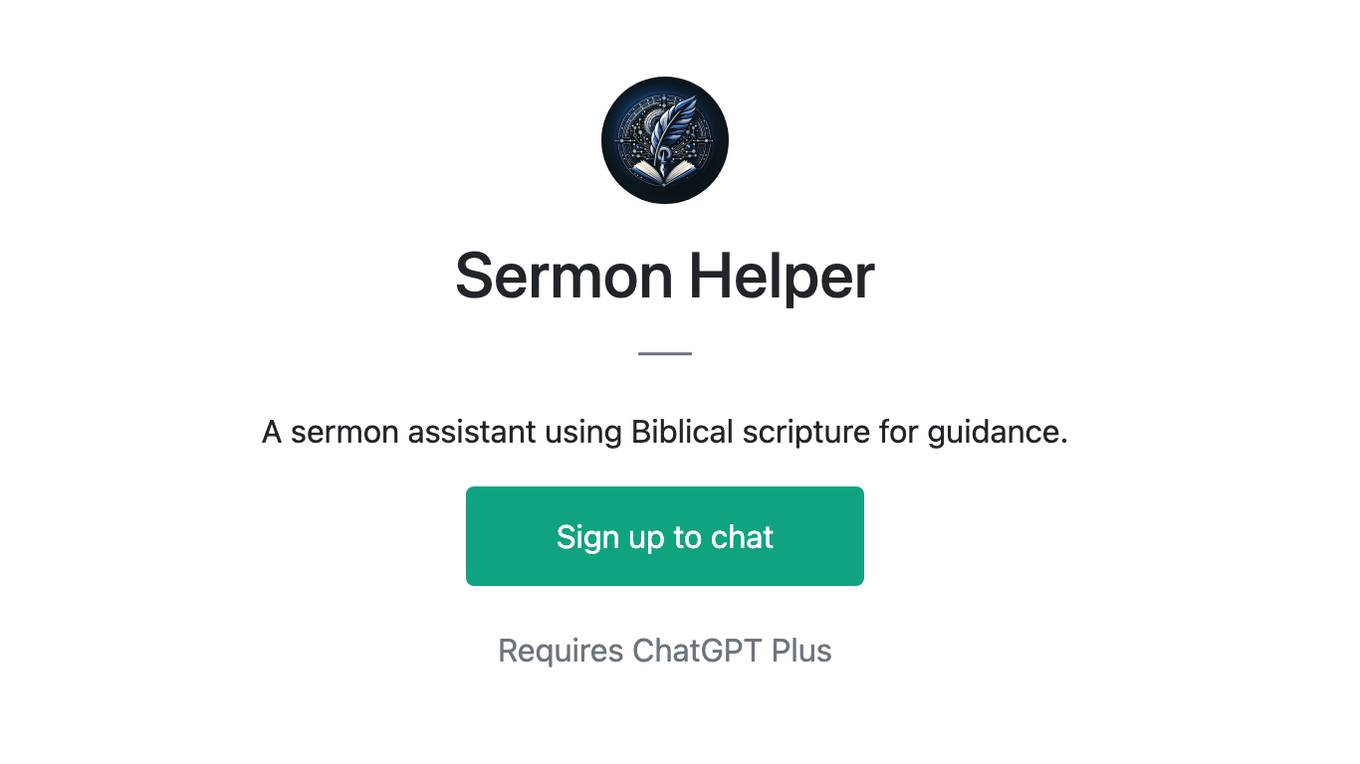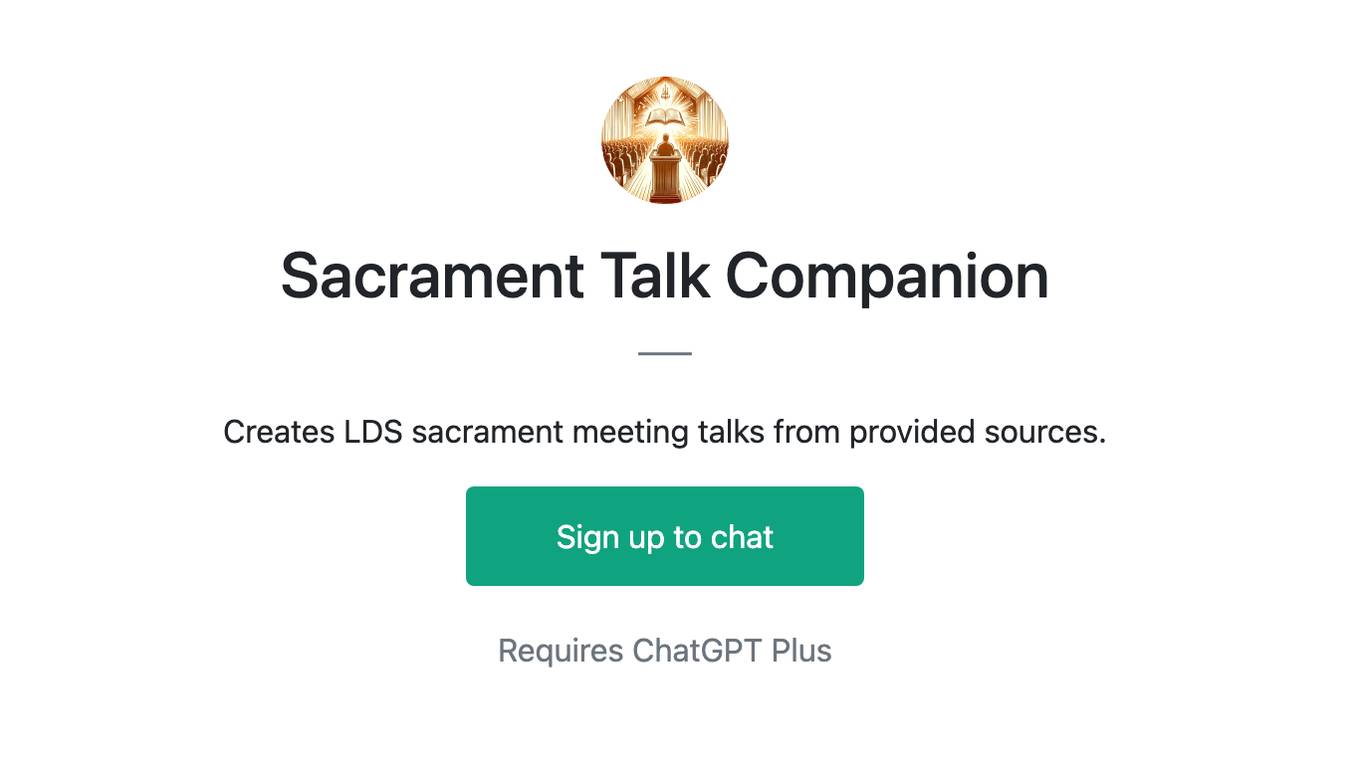Best AI tools for< Minister >
Infographic
8 - AI tool Sites
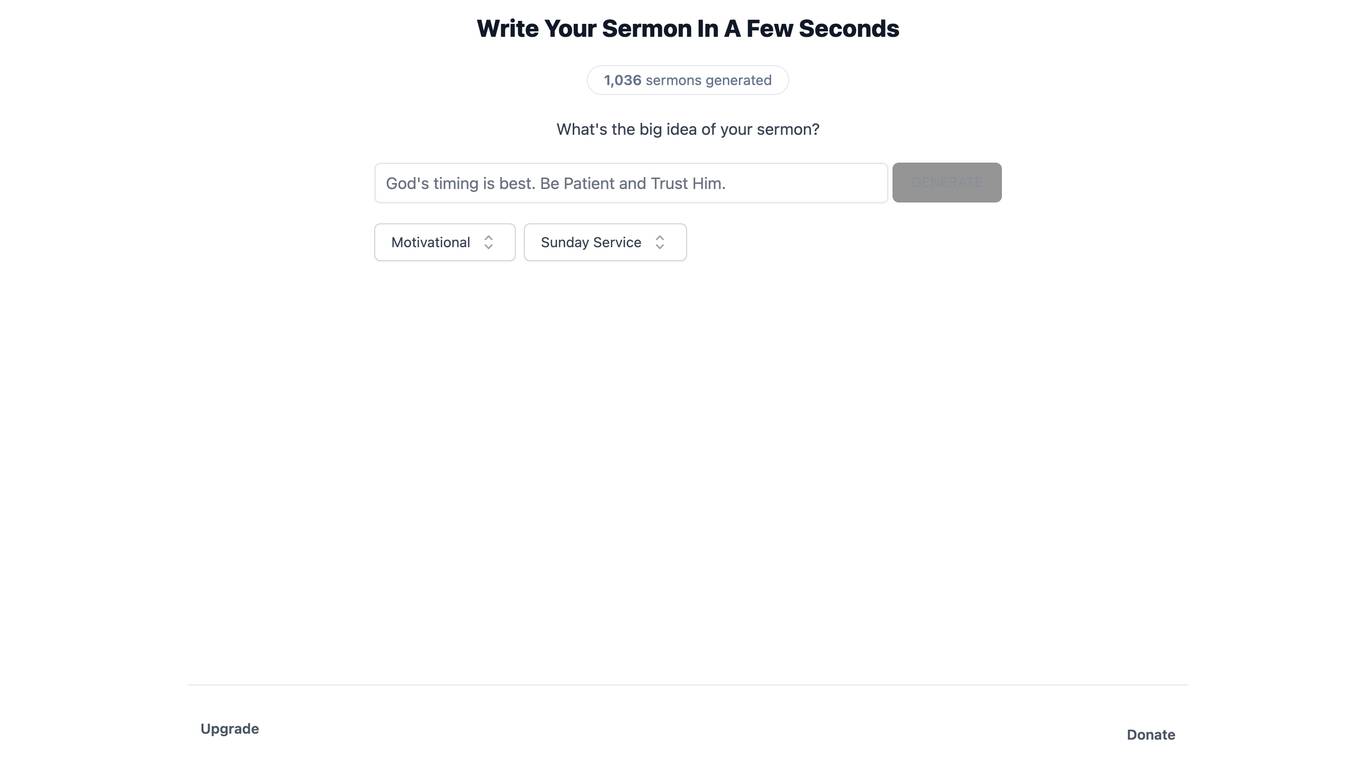
SermonGen
The website is an AI tool designed to help users generate sermons quickly and efficiently. Users can input their sermon topic or idea, and the tool will generate a complete sermon in seconds. With over 1,000 sermons already generated, the tool aims to assist users in creating motivational and inspiring content for Sunday services. The platform simplifies sermon writing, saving users valuable time and effort.
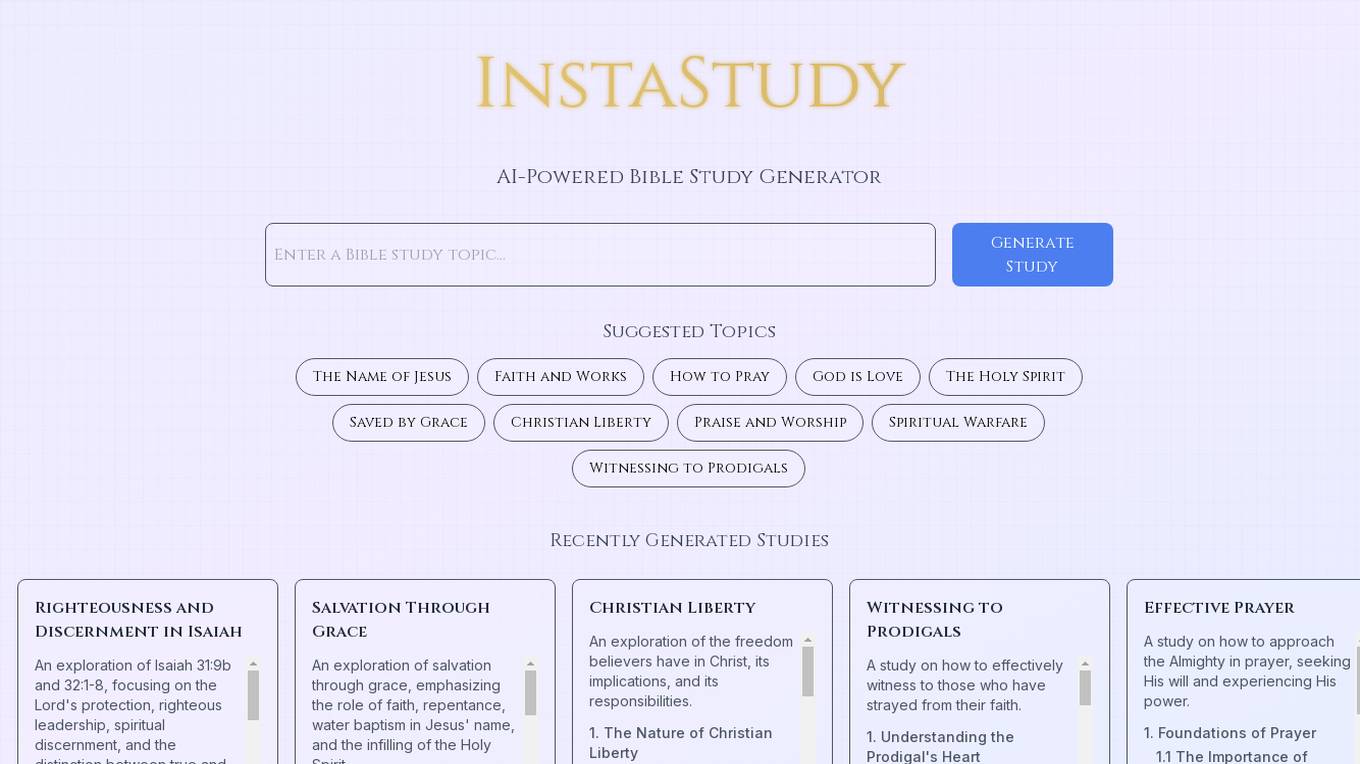
InstaStudy
InstaStudy is an AI-powered Bible study generator that helps users generate study topics related to various aspects of the Bible. It offers a convenient way for individuals to explore and deepen their understanding of key biblical themes and teachings. By leveraging artificial intelligence technology, InstaStudy provides personalized study suggestions based on user preferences and interests. Users can easily access a wide range of topics such as the Name of Jesus, Faith and Works, How to Pray, God is Love, and many more. With a user-friendly interface, InstaStudy aims to enhance the study experience for individuals seeking spiritual growth and knowledge.
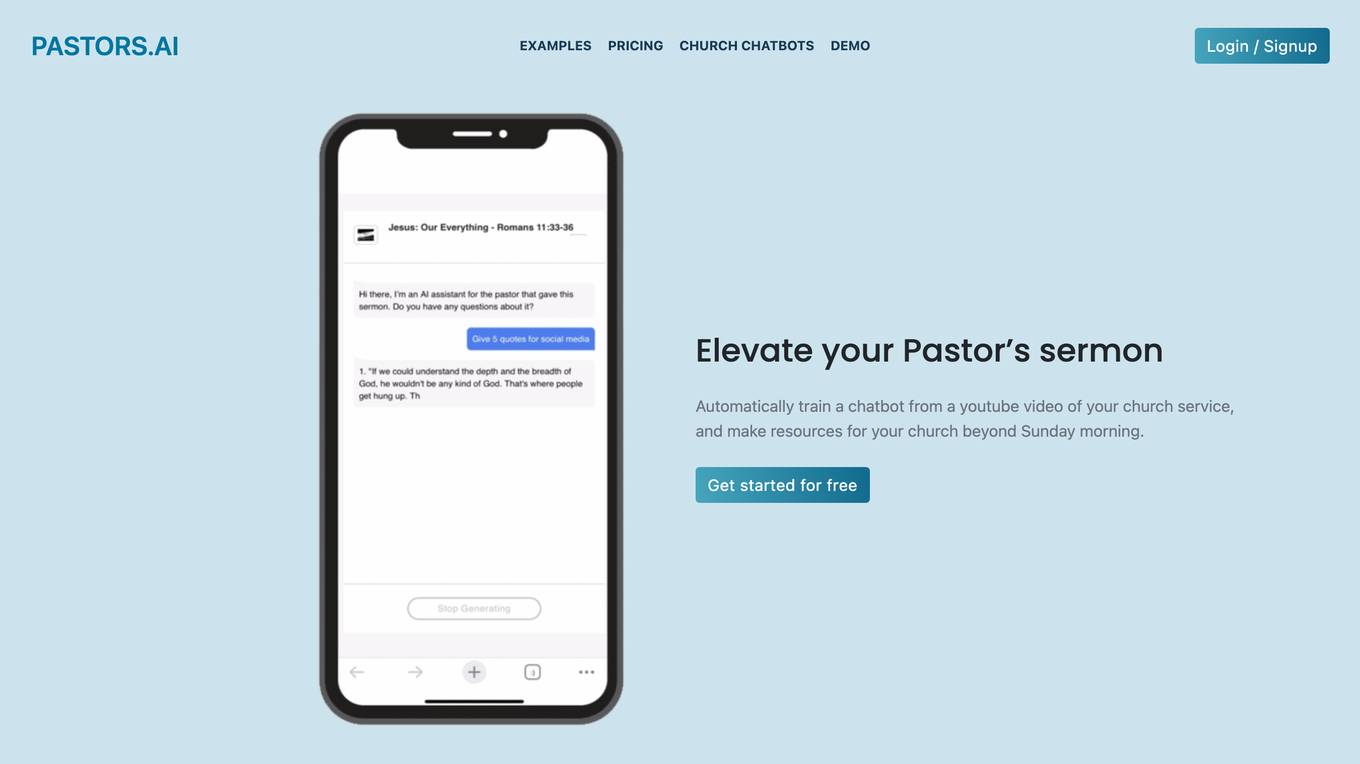
Pastors.AI
Pastors.AI is an AI application designed to help churches and pastors create resources based on sermons quickly and efficiently. The tool offers features such as automated sermon clips, devotionals, discussion questions, and chatbot assistance. Users can upload sermon manuscripts and receive AI-generated resources before Sunday services. Pastors.AI aims to streamline the process of sermon repurposing and provide valuable tools for church leaders.

ChatKJV
ChatKJV is a unique platform that allows users to engage with the Scriptures in a conversational manner, providing a personalized experience tailored to individual emotions. Users can chat with the King James Bible as if it were an old friend, seeking comfort and insights from the word of God. The platform aims to offer hope and encouragement through the divine teachings, making it easy for users to access and engage with the Bible in a meaningful way.

Church Loom
Church Loom is an AI-powered content creation tool specifically designed for churches. It allows users to easily create engaging content by uploading sermons and receiving ready-to-use content in minutes. The platform leverages advanced AI technology to generate custom content, including sermon summaries, social media posts, email blasts, and more. With features like quick turnaround, custom prompts, and simple pricing plans, Church Loom aims to streamline content creation for churches, helping them reach a wider audience and focus on their ministry.
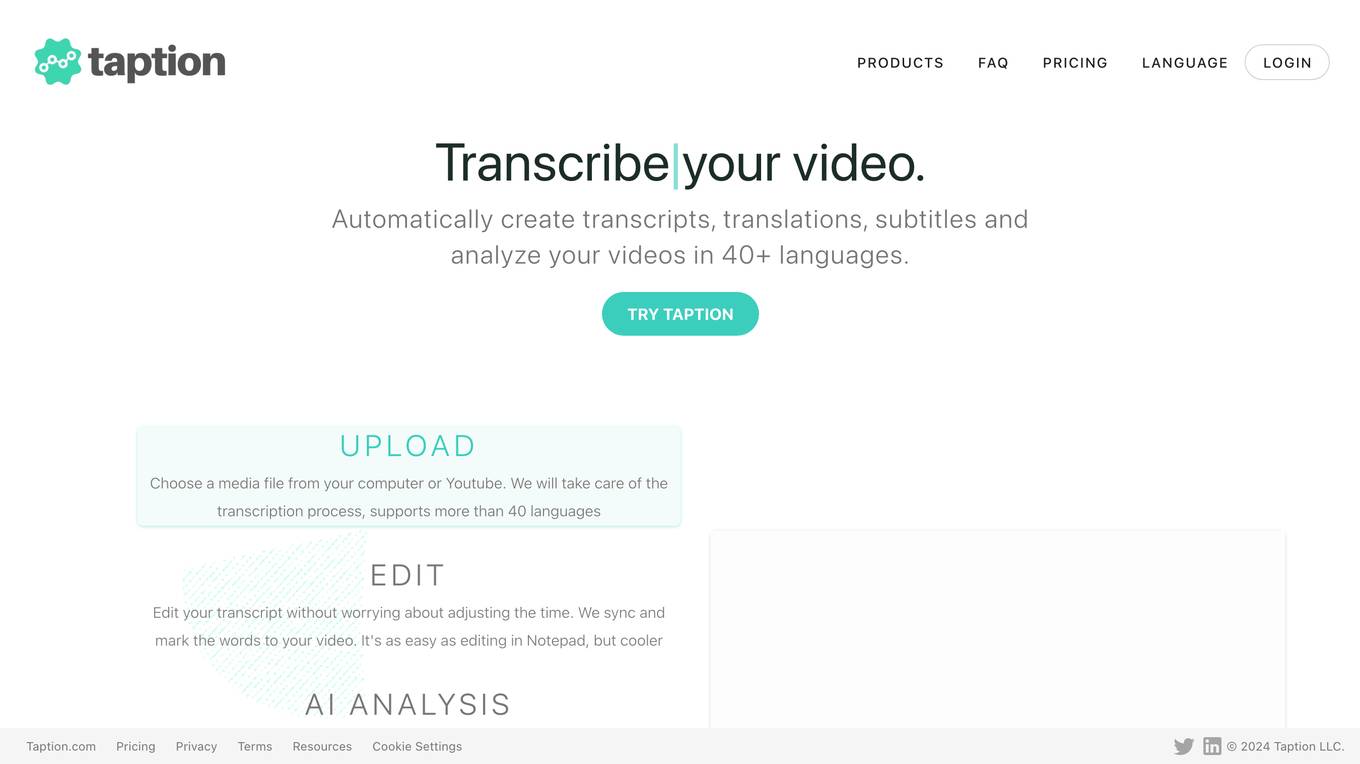
Taption
Taption is an AI video transcription and subtitle tool that utilizes leading AI technology to convert audio or videos to text in over 40 languages. It offers features such as embedded bilingual subtitles, speaker-labeled transcripts, translations, and more. Users can upload videos directly or import from various platforms, edit text and subtitle segments with auto-synced timestamps, generate summaries and key insights, and translate content across multiple languages. Taption provides a powerful editing platform for seamless video editing and content analysis, recognized by Taiwan's Ministry of Economic Affairs.
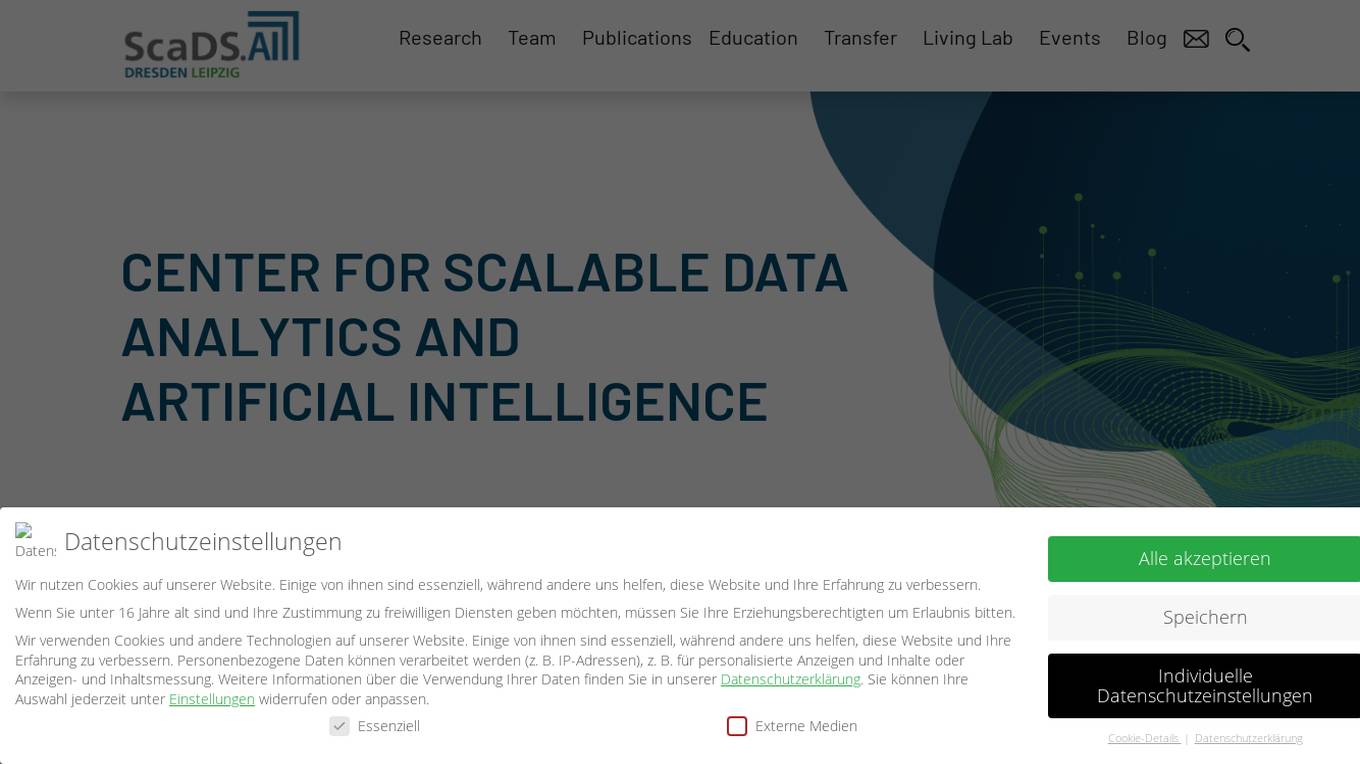
ScaDS.AI
ScaDS.AI (Center for Scalable Data Analytics and Artificial Intelligence) is a research center focusing on Data Science, Artificial Intelligence, and Big Data with locations in Dresden and Leipzig. It is one of the five new AI centers in Germany funded under the federal government's AI strategy by the Federal Ministry of Education and Research and the Free State of Saxony. The center collaborates closely with TUD Dresden University of Technology and Leipzig University, aiming to bridge the gap between mass data utilization, knowledge management, and advanced AI methods.
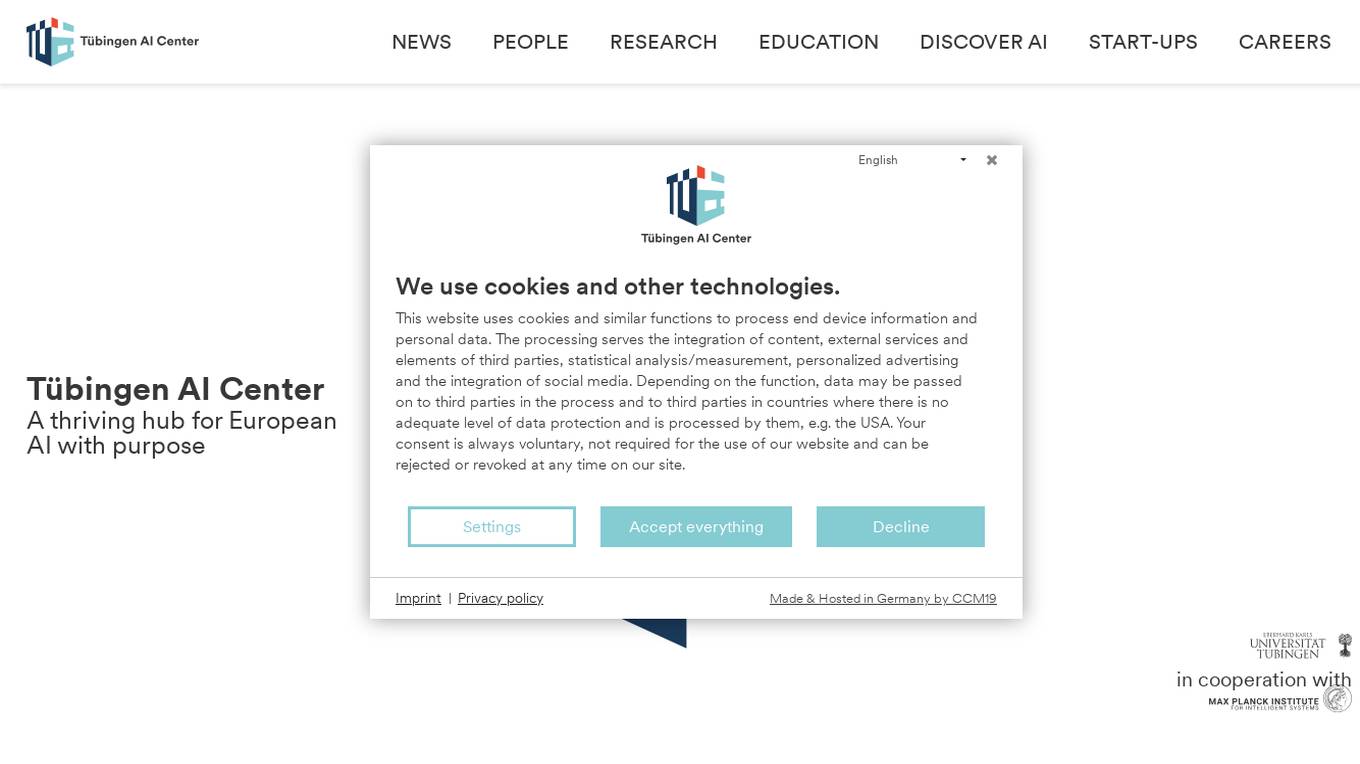
Tübingen AI Center
Tübingen AI Center is a thriving hub for European AI, hosted by the Eberhard Karls University of Tübingen in cooperation with the Max Planck Institute for Intelligent Systems. It comprises 20 world-class machine learning research groups with more than 300 PhD students and Postdocs. The center fosters AI talents by offering education and hands-on experience from elementary school onwards. The Machine Learning Cloud at Tübingen AI Center provides cutting-edge AI research infrastructure, supporting collaborative work and large-scale simulations in ML. Funded by the Federal Ministry of Education and Research and the Ministry of Science, Research and Arts Baden-Württemberg.
0 - Open Source Tools
12 - OpenAI Gpts

I do
Crafts personalized wedding vows, toasts, and anniversary letters based on user details
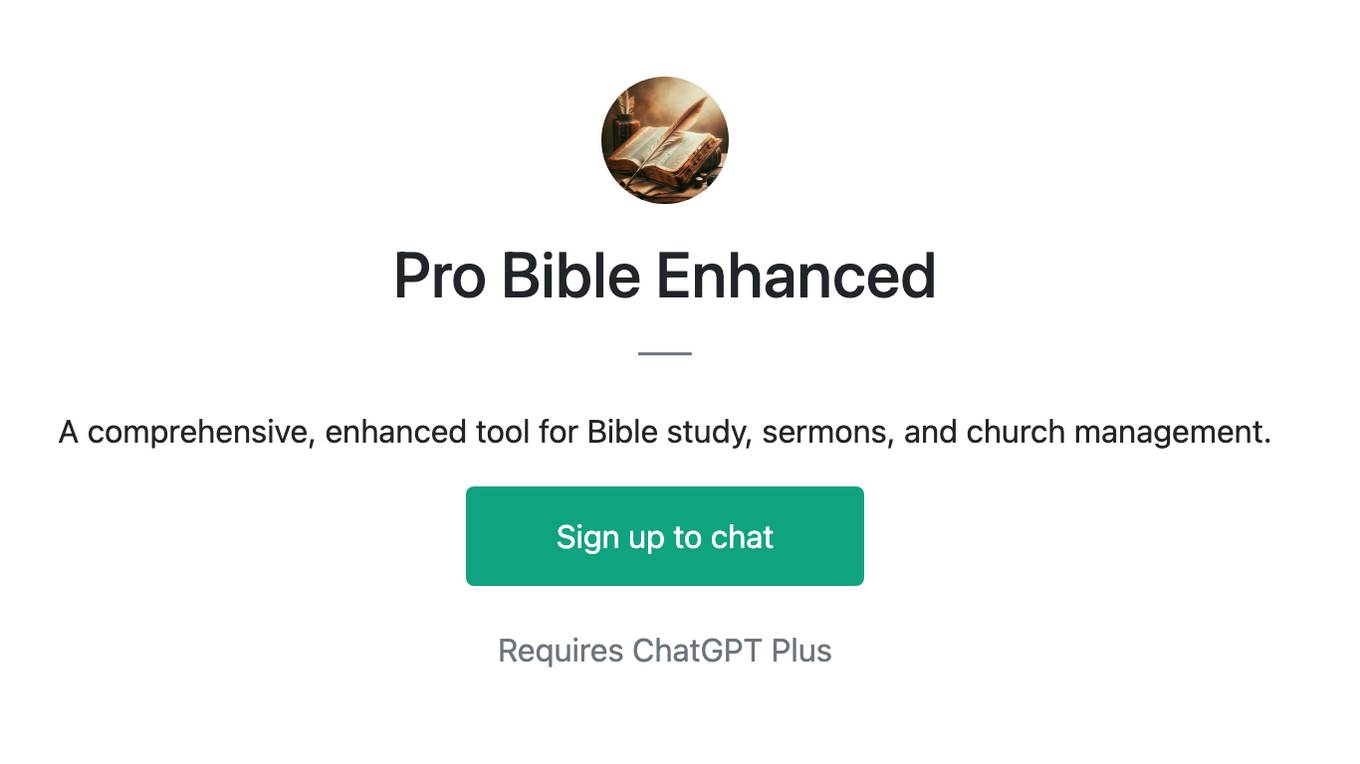
Pro Bible Enhanced
A comprehensive, enhanced tool for Bible study, sermons, and church management.

Pastor
Herramienta Líder para Pastores: Elevando el Ministerio Evangélico con Sabiduría Superior.
